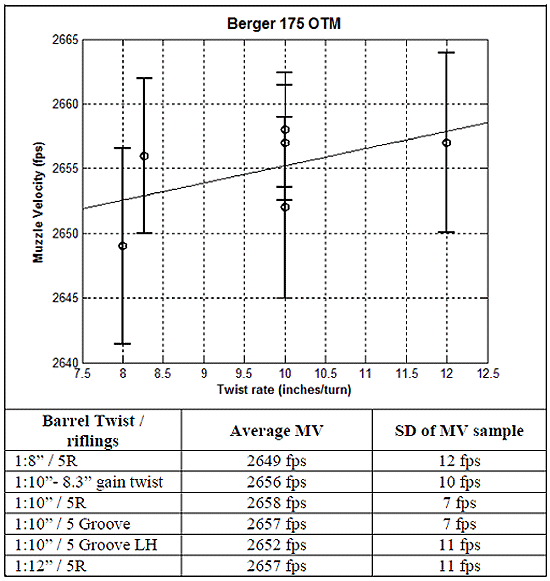Page 1 of 1
OK,...Here is one I could never figure out,...
Posted: February 25th, 2019, 11:40 am
by shooter444
Which factor would you believe creates more slide battering,... VELOCITY or PRESSURE?
thanks
Re: OK,...Here is one I could never figure out,...
Posted: February 25th, 2019, 12:55 pm
by Boriqua
shooter444 wrote: ↑February 25th, 2019, 11:40 am
Which factor would you believe creates more slide battering,... VELOCITY or PRESSURE?
thanks
GREAT question!! Will be watching this one . I always assumed it was pressure and when reloading and have a choice between 2 powders that will give me the same velocity I always pick the one that creats the least pressure but ..I am not an engineer and I have only been at reloading for 2 years so I know little to nothing!!
Re: OK,...Here is one I could never figure out,...
Posted: February 25th, 2019, 5:07 pm
by shooter444
Funny,... I always thought it was velocity,... goes to show we both need some expert opinions on this one!

Re: OK,...Here is one I could never figure out,...
Posted: February 25th, 2019, 9:08 pm
by Jack Dupp
Usually velocity.
Re: OK,...Here is one I could never figure out,...
Posted: February 26th, 2019, 5:15 am
by Flash
Jack Dupp wrote: ↑February 25th, 2019, 9:08 pm
Usually velocity.
I'll go with velocity also.
Re: OK,...Here is one I could never figure out,...
Posted: February 26th, 2019, 6:05 am
by knockonit
Re: OK,...Here is one I could never figure out,...
Posted: April 27th, 2019, 8:02 pm
by lostdog99
Because the word "slide" was used I am assuming that pistols are the intended topic. My response is based on that. Most modern pistols are based off of "short recoil" principle using a locked breech to keep the chamber closed long enough to let the pressures drop to safe levels. Recoil is a function of the force used to get the bullet moving AND the inertia (weight) of the bullet. [every action has an equal and opposite reaction].
So, a heavier bullet with one charge will have more recoil (and consequently more slide velocity) than a lighter bullet with the same charge. Based off this I will bet that slide "battering" and pressure will be closely tied together. Fortunately SAAMI and C.I.P have us covered. They provide safe pressure guidelines for ammunition manufacturers to abide by . . . and makers of reloading manuals to publish safe instructions off of.
Re: OK,...Here is one I could never figure out,...
Posted: May 4th, 2019, 2:08 pm
by Pro2a
I see your science lostdog, but many shooters of the 365 swear the the Federal HST 147gr is the smoothest shooting bullet in that gun.
Is this just a perception, and that's not really the case?
Re: OK,...Here is one I could never figure out,...
Posted: May 9th, 2019, 8:13 pm
by 17-21-23
Well let's see...it takes pressure to produce velocity. No pressure no velocity. Now if you had a smooth bore weapon no rifling then the pressures would be at a minimum so would velocity. The more of a twist that you have in the bore the longer the bullet will stay in the barrel after pressure is produced to push the bullet out of the barrel. Therefore the longer it takes to get the bullet out of the barrel the higher the pressures build. So in theory they go hand in hand without one you couldn't have the other
Re: OK,...Here is one I could never figure out,...
Posted: May 10th, 2019, 7:00 am
by YNOTAZ
17-21-23 wrote: ↑May 9th, 2019, 8:13 pm
Well let's see...it takes pressure to produce velocity. No pressure no velocity. Now if you had a smooth bore weapon no rifling then the pressures would be at a minimum so would velocity. The more of a twist that you have in the bore the longer the bullet will stay in the barrel after pressure is produced to push the bullet out of the barrel. Therefore the longer it takes to get the bullet out of the barrel the higher the pressures build. So in theory they go hand in hand without one you couldn't have the other
Actually just the opposite, the less the twist rate the higher the velocity. A high, tight twist rate say 1 twist in 7" vs 1 twist in 9" expends some of the energy of the explosion on the inertia required to overcome the friction in order to spin the projectile. See Barry Litz's, a ballistician's example from his book.

But even a broken clock is right twice a day, so back to the OP question.

The same powder charge and bullet weight with more friction leaving the barrel will result in less velocity but, as stated by lostdog, has more inertia when combining forward and lateral inertia causing a greater amount of "equal reaction". Does the inertia from rifling impart a twisting opposite inertia or add to the slide inertia? Given that, I'm not sure there is a direct correlation between pressure, velocity and the reaction of the slide. That would take a ballistician since there are more issues such as powder burn rate (how fast the pressure spike occurs and diminishes), projectile weight and coatings which cause friction altering inertia, barrel length and twist rate affecting friction which slows velocity but generates additional inertia.
One example of this comes to mind, the .300 blackout which is a derivative of the .300 whisper. The original was developed by JD Jones and designed to be shot suppressed with an optimal barrel length of 10.5". When loaded as it was designed increasing barrel length reduced velocity because the pressure spike had dissipated so the friction of the rifling starts to slow the projectile, added length = more friction = even less velocity. Different load change these dynamics.
None of this calculates actual forces on slide of a pistol. Any Ballisticians or mechanical engineers that can contribute?
